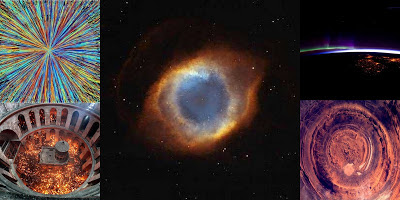“he who is constantly good”
St. Onuphrios the Great

Св. Онуфри Велики
Troparion, Tone 1
Through desire you have reached the spiritual desert,
Oh, divinely wise Onuphrios, and as fleshless
you have worked exploits in it, [you] labor-lover,
competing with the prophets Elijah and the Baptist,
and from the angelic hand you have delighted in the divine mysteries,
and you are now enjoying in the light of the Holy Trinity
together with them. Pray for us to be saved,
we who revere your memory.
Troparion (Tone 1)
In the flesh you lived the life of an Angel,
you were a citizen of the desert and a treasury of grace,
Oh Onuphrios adornment of Egypt.
Wherefore we honour your struggles as we sing to you:
Glory to Him Who has strengthened you;
glory to Him Who has made you wonderful;
glory to Him Who through you works healings for all.
Тропарь преподобного Онуфрия Великого
глас1
Желанием
духовным пустыни достигл еси, богомудре Онуфрие,
и яко безплотен в ней многолетне подвизался еси трудолюбне,
соревнуя пророкам Илии и Крестителю:
и от руку ангельску таин божественных насладився,
ныне во свете Святыя Троицы купно с ними веселишеся.
Моли спастися нам, твою память почитающим.
и яко безплотен в ней многолетне подвизался еси трудолюбне,
соревнуя пророкам Илии и Крестителю:
и от руку ангельску таин божественных насладився,
ныне во свете Святыя Троицы купно с ними веселишеся.
Моли спастися нам, твою память почитающим.
Тропарь преподобных Онуфрия и Петра
глас 4
Боже
отец наших, творяй присно с нами по Твоей кротости,
не отстави милость Твою от нас,
но молитвами их
в мире управи живот наш.
Молитва преподобному Онуфрию
О
преизящный и превеликий пустынножителю, преподобне отче Онуфрие!
Похваляю твоя неизреченная чудотворения и житие пресветлое, еже еси
препроводил от юности твоей даже и до старости: никтоже бо изчести
возможет терпений и подвигов твоих, пречестне. Удивися преподобный
Пафнутий твоему жестокому, еже в пустыни, житию, вкупе же и зело
возрадовася, обрет тя единаго толиких подвигов исовершенства суща
образ. Сего ради и подлинно испыта о трудех твоих святых и о еже колико
имел еси временнаго жития. Темже и написа, яко шестьдесят лет и три в
трудолюбии пребывая, в наготе претерпевая мраз и зной, в глубоцей
пустыни со зверьми и птицы обитая, молитвы непрестанно творя, пожил еси.
Сего ради ныне радость тебе приношу от недостойных устен моих,
преподобне отче, преподобному Пафнутию радосте великая: сподобися бо при
кончине со львы послужити тебе, погребсти тело твое и с тобою на Небеси
жити, Илии Фесвитянину ревнителю, Иоанну Крестителю наследниче, друже
Христов и снаследниче истинный, Египту умная красото, фивеом великое
светило, Ливии красная доброто, финиксе краснопроцветающий, орле
высокопарный, летающий в поднебесная, на Небесех гражданство обретый,
идеже и водворися у Престола Владыки славы, с двадесять четырьми старцы
жилище обретый, с ними же и пребываеши. И ныне молю тя, пречудный
гражданине Небесный, святых ликов Ангельских совсельниче: услыши мя,
грешнаго и недостойнаго раба твоего, в час сей и приими сие малое
моление мое, великий заступниче, скорый помощниче притекающим к тебе
усердно; заглади рукописание дел моих скверных и нечистых, яже держат
демонския полки, покрый мя твоим заступлением, причти мя ко уготованному
месту молитвами твоими и сподоби мя Вышняго Иерусалима, ибо по
Преблагословенней Владычице нашей Богородице и Приснодеве Марии тебе
между теплейшими помощниками и заступниками моими почитаю. Присещаеши бо
и даеши руку помощи припадающим к тебе в храме твоем повсюду. Темже и
аз, недостойный, ныне тебе молюся и призываю: умоли Милостиваго Бога, да
отпустит ми вся прегрешения моя вольная и невольная, сотворенная вся
злая дела моя и да избавит мя твоим предстательством от вечных мук,
научит мя творити добрая дела, наставит мя на путь ко спасению истинному
и сподобит мя купно радости вечныя насладитися со всеми святыми ныне, и
присно, и во веки веков. Аминь














